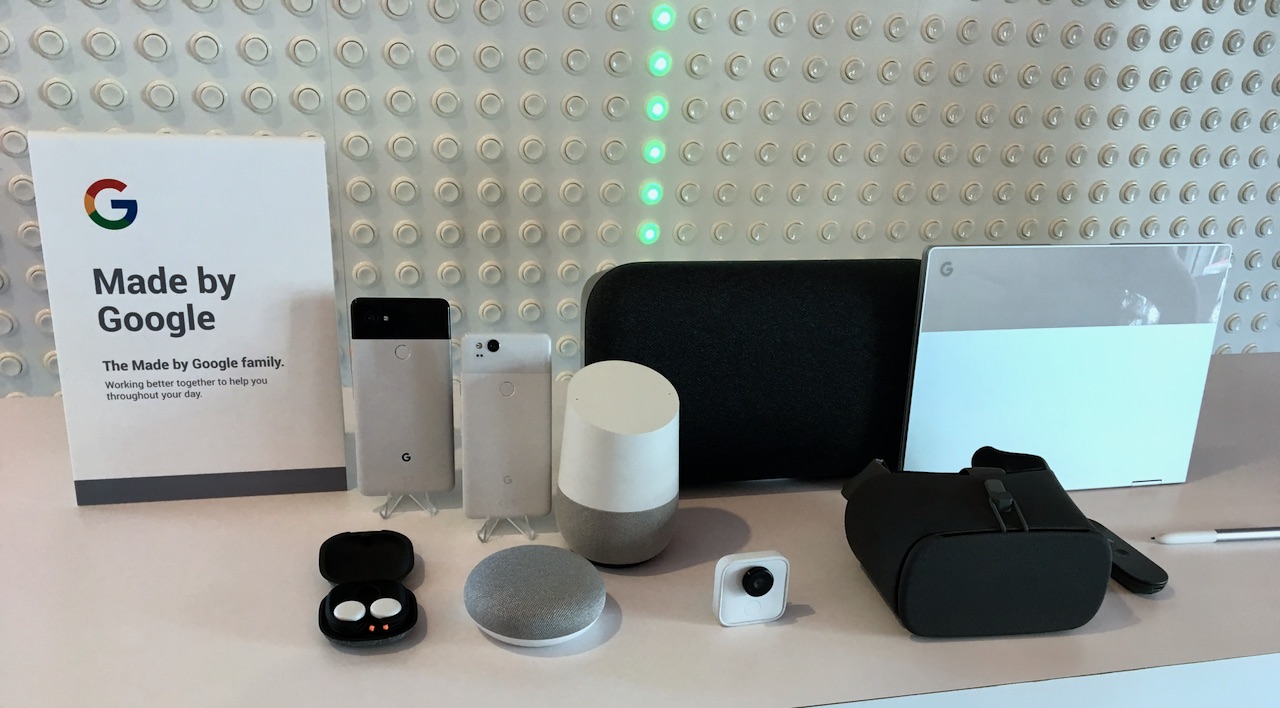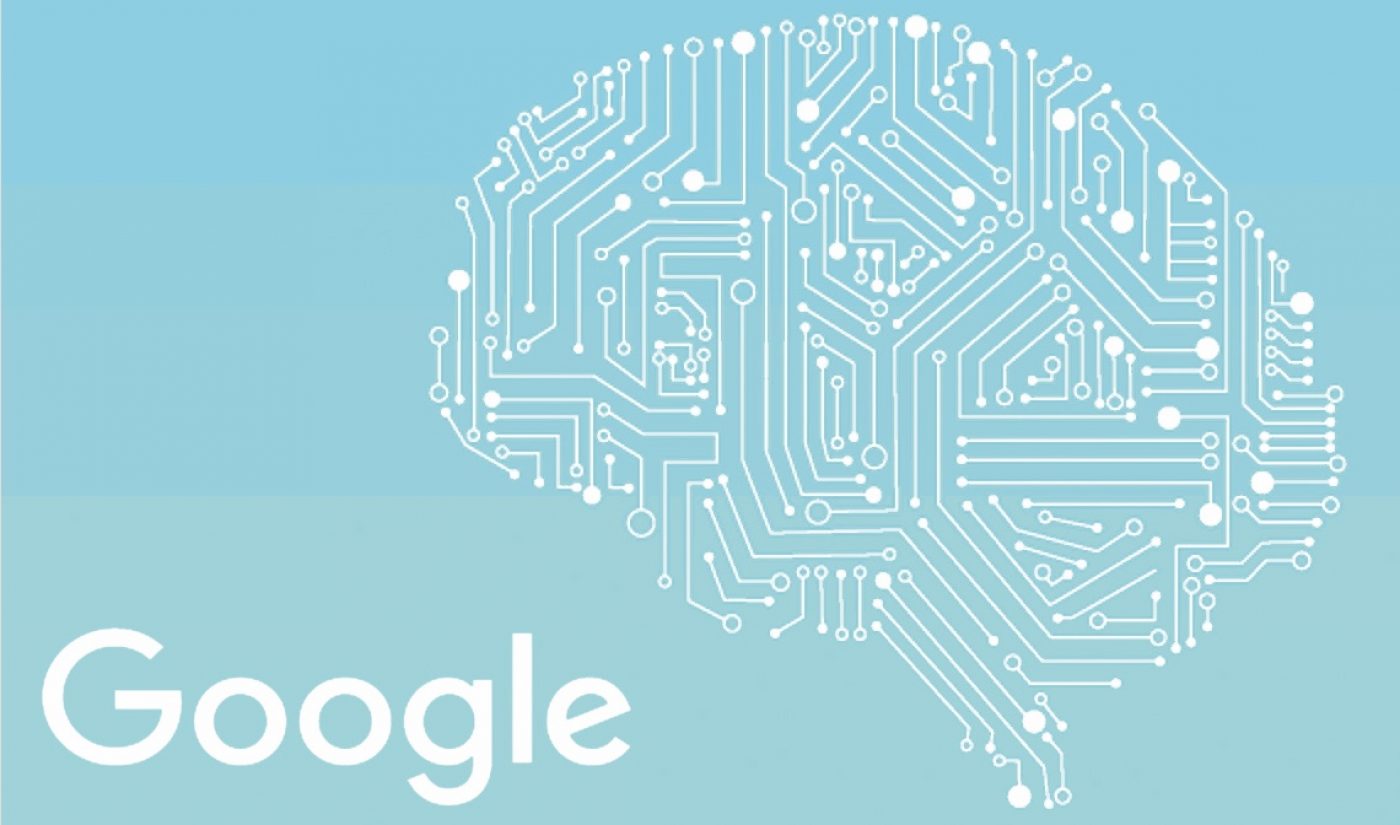Insights is a weekly series featuring entertainment industry veteran David Bloom. It represents an experiment of sorts in digital-age journalism and audience engagement with a focus on the intersection of entertainment and technology, an area that David has written about and thought about and been part of in various career incarnations for much of the past 25 years. David welcomes your thoughts, perspectives, calumnies, and kudos at david@tubefilter.com, or on Twitter @DavidBloom.
This looming holiday season marks a major shift for Google, already one of the world’s most valuable and influential companies. After years of pushing technologies that run on lots of different companies’ hardware, including phones and other devices made by others on its behalf, Google is now rolling out a range of hardware products that it brags were designed and made in-house. Even more importantly, Google is spending millions on advertising and marketing to talk about how it has woven its artificial-intelligence technologies into all that sleek new hardware.
Unasked amid the big campaigns, however, are important questions: Does Google still have, or deserve, our trust? Has it earned the right, after the last miserable year of missteps, to put this powerful, helpful and invasive new technology everywhere in our lives?

Subscribe for daily Tubefilter Top Stories
By all accounts, Google has devoted many years and prodigious resources to its AI initiatives. And the received wisdom is that the investment has paid off handsomely, with capabilities that far outstrip similar technologies from Apple, whose admirable decision not to mine our personal data means its version of AI has less I.
And it’s important to note that Google and Apple aren’t the only big AI players. Amazon is weaving its Alexa digital assistant into smart speakers and quite a number of other products from various companies.
Facebook (which has had its own huge trust problems lately) also has invested heavily, though it is not really in the business of hardware. Microsoft, IBM, and many others are also in the AI race. Heck, even Wal-Mart is getting in, to keep up with Amazon, and the BBC wants to use AI (in their case, machine learning) to improve programming.
Google, like its competitors, has created smart AI tools designed to anticipate what we want, based on our history, location, and the context of the conversation, to give us the information, entertainment, and whatever else we need. Now it is beginning to market (through a pricey national TV ad campaign, pop-up stores and more) AI-enabled phones, smart speakers, styluses, webcams, ear buds, and high-end computers. The gadgets look great, and do a lot of eye-catching tricks, all at competitive prices.

Google’s LA pop-up shop. They also have one open in NYC.
That sounds great, just like all the other cool things Google has given us over the years, from free Gmail to free Gdocs to endless YouTube videos to the world’s most popular search engine.
Except that back when we traded pieces of our privacy for access to the free email, productivity apps, creator vlogs, and search results, we were working from the premise that Google was consistently living up to its unofficial but enduring motto, “Don’t Be Evil.”
That motto is still floating around (though under the 2015 reorganization that created Alphabet, Google’s parent company adopted “Do the Right Thing,” apparently not a Spike Lee homage.
And I’m not saying that Google (or Alphabet) has been particularly evil. But boy, the search giant has spent a big chunk of the past year defending itself for at least inadvertently aiding the evil and more generally crappy elements of society.
Adpocalypse, of course, was an advertiser revolt, sparked because Google did a terrible job protecting brands from ending up next to (and thereby helping finance) videos from terrorists, extremists groups and other unsavory sorts.
Congressional and special investigators are trying to divine how much Google, Facebook, and Twitter were used in the scandals last year around fake news manipulations by Russian troll farms attempting to sway the elections. An endless series of recent lesser revelations suggests that the tech giants even worked with campaigns to better create and target manipulative advertising (though some ads were blocked for violating standards).
Just this week, the New York Times reported that Google placed ads for blatantly fake-news sites in, of all things, fact-checking sites such as Snopes.com and PolitiFact. Doh!
Since the scandals broke, Google has moved on several fronts to improve its systems and processes to prevent a repeat of the messes its technology enabled. In part, it has said it will rely on better, yes, artificial intelligence to police its community standards and other rules. Here’s hoping that works.
But perhaps it’s also a good moment for consumers to take a timeout before we rush fully into the AI era this holiday season. Let Google, Amazon, Facebook, and the other players show they can be trusted with the tools they’ve been creating before we let them take another very large step into the middle of our lives.
I have no illusions about slowing down this juggernaut, even minimally. Indeed, this Christmas season almost certainly will see millions of AI-enabled gadgets sold by Google, Amazon, and others. But maybe we should get a better idea just what we have here. It’s like waiting a week before updating to the new version of your operating system. Let someone else find the bugs on the bleeding edge of technology.

A sleek Google hardware display, the contents of which hopefully won’t be evil.
We’re charging headlong into this new era, and doing so before Google and its competitors have demonstrated why they should be trusted. Maybe they can be. Maybe they’ve done a better job here than in some of the recent controversies. Or maybe, given this week’s latest announcements about the self-improving AlphaGo, just maybe Google’s AI technologies can do a better job building themselves.
I’d point out that all of this is new territory, as opposed to those older controversies, which involved core business operations of these companies, using technologies that were relatively well understood. And no, making that point wasn’t designed to make you feel better about their efforts in AI.
But as we ponder the meaning of “Don’t Be Evil” in this new era, let’s at least hope that, like Isaac Asimov’s Three Laws of Robotics, Google has managed to work that phrase into the algorithm.








